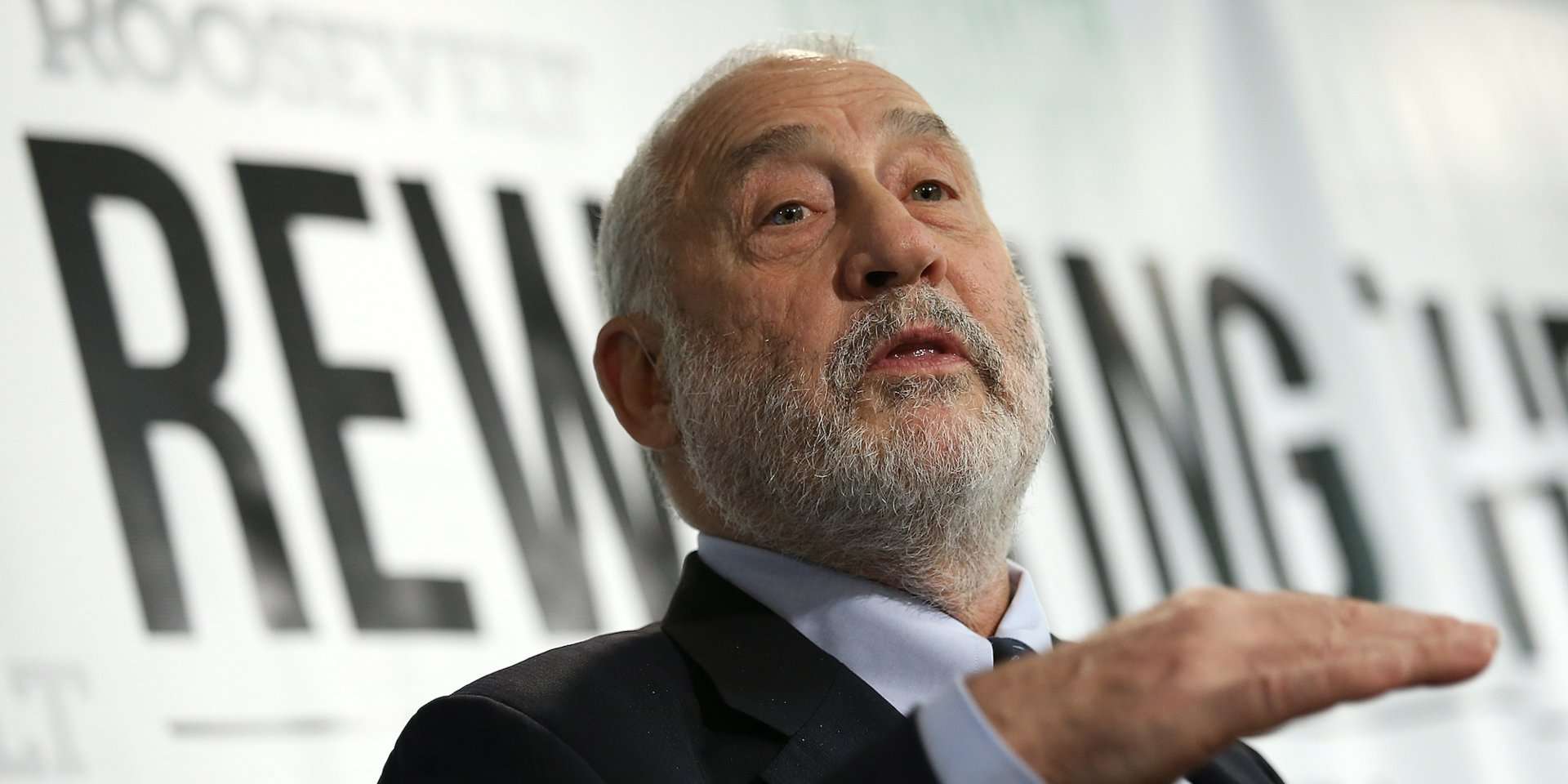President Donald Trump has said for years that Amazon could require an "antitrust situation" and, with very different motivations, Sen. Bernie Sanders of Vermont has been fighting against what he deems Amazon's abuse of its unmatched power over its employees.
And Massachusetts Sen. Elizabeth Warren has been the most vocal figure in Washington calling for breaking down what she considers America's monopolies in the airline and health care industries, among others.
For Joseph Stiglitz, a Nobel Prize-winning economist with Columbia University, talk of monopolies in the United States goes beyond partisan political rhetoric.
As he said in a talk given last year:
"We seem no longer to control our own destinies. If we don't like our Internet company or our cable TV, we either have no place to turn, or the alternative is no better. Monopoly corporations are the primary reason that drug prices in the United States are higher than anywhere else in the world. Whether we like it or not, a company like Equifax can gather data about us, and then blithely take insufficient cybersecurity measures, exposing half the country to the risk of identity fraud, and then charge us for but a partial restoration of the security that we had before a major breach."
Sure, comparing the steel monopoly of America's Gilded Age of the late 19th century to the concentration of power Big Pharma has today in our "New Gilded Age" is a stretch, but in both cases they were both the result of, and drivers of, further economic inequality.
In an interview with Business Insider in March, Stiglitz argued that a foundation of the income inequality that has been rising in the US since the 1980s was the free market ideology championed by the Chicago school of economics.
Basically, the Chicago school argues that the "invisible hand" of the market is capable of correcting itself; in the case of a monopoly, for instance, "monopoly power would only be temporary, and the ensuing contest to become the monopolist [would maximize] innovation and consumer welfare," as Stiglitz put it in his speech.
It's an ideology that Stiglitz insists is disproven by data.
Stiglitz believes that antitrust law did not keep up with a changing economy, and that's why large companies were able to create barriers to entry that allowed them to continue growing larger and consuming smaller competitors — in a way beyond healthy competition.
This results, he said, in rent-seeking (the increase of a company's share of wealth without creating new wealth), lower returns on investment, a stifling of innovation, and a less efficient economy.
In an essay he wrote in 2016, Stiglitz pointed to research from President Barack Obama's council of economic advisers, which was led by Jason Furman. The team found that in the period from 1980-2010, the top 10 banks' share of deposits rose from 20% to 30%.
The team also found that market concentration increased across major industries from 1997-2012 (e.g. the revenue share of the largest 50 firms in transportation and warehousing and retail trade both increased by over 11%).
Stiglitz pointed out to Business Insider that the average GDP growth for the US has been sluggish (a post-2000 average of 2.0% versus a post-1948 average of 3.2%), and, as French economist Thomas Piketty has pointed out in detail, that recent growth has been largely captured by the 1% anyway.
The rising inequality of both wealth and income in the US is, of course, very complex, but according to Stiglitz, updating our antitrust laws to make our markets more competitive is a necessary step to lessen inequality and increase growth.

sebchris on September 7th, 2018 at 02:28 UTC »
Mark Zuckerberg's answer, to the question of what (if any) competition Facebook faces, that people can do things other than use Facebook perfectly sums up the state of market power in the US.
PunkCPA on September 7th, 2018 at 01:15 UTC »
I rarely agree with Stiglitz, but he has a point here. There are massive barriers to entry, mostly related to scale, to some of our most important business processes. Your company needs to be of a certain size to compete. It's like "jacks or better to open, progressive" has escalated to where you need 4 of a kind to even start. Once a Facebook, Apple, Amazon, Netflix, or Google (FAANGs, collectively) has reached a dominant size, there is no chance of a competitor gaining market share. Market share begets market share. If a potential disruptive technology comes up, a FAANG can absorb it and extend its market share into the new area.
Way, way back when, the disruptive tech was the automobile. There were plenty of automobile manufacturers, but Standard Oil moved to monopolize the fuel supply, from exploration to the pump. That one company was broken up into competing companies. The trick was that your carburetor did not care what company sold you the gasoline. If these new monopolists are to be broken up, there has to be a way of ensuring interoperability.
asws2017 on September 7th, 2018 at 01:10 UTC »
Amazon is becoming so large it is not unfathomable that they may hold some monopoly power in a market of 330 million people. Competition is good, at least to keep rivals in check.